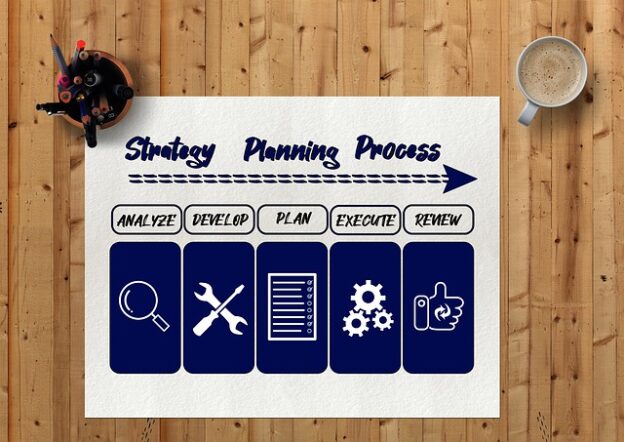It’s a New Year and time to think about new beginnings, new ventures and new business plans.
We thought it would be a good time to check in with our GRP Capital Management, President Rick Patel and Managing Director Krishan Patel. Let’s find out what their take is on the economy and the state of commercial lending. Check in with us if you have follow-up questions. We would love to hear your business plans and our team of experts is ready to consult with you.
Here is our conversation:
Q: What are the best ways to deal with rising interest rates while seeking financing?
Krishan: Although borrowers may not have direct control over interest rates, they can work in their favor by reducing the leverage of their transactions. With a potential recession on the horizon, banks will be under close scrutiny by regulators, leading them to prioritize making safer loans. As a result, lenders may be more willing to offer reduced rates to borrowers who are willing to take on more risk or offer a banking relationship. Banks are interested in offering incentives to borrowers to choose their institution.
Q: What measures should business owners be taking during these times of higher interest rates?
Rick: I tell all our clients to be strong managers. Focus on controlling expenses as much as possible. You may want to reach out to your lender. Keep them informed if you have any hardship with your interest rate. It might be the time to discuss modifying your rate if it’s workable.
Krishan: Clients also need to be watching carefully how rising interest rates are affecting their bottom lines. Interest rate increases can have a ripple effect throughout the supply chain, as companies may need to raise their prices in response. As an end seller or service provider, it is important to consider these changes. Adjust prices strategically to maintain your margins and remain competitive in the market. It is also essential to move levers with conviction, rather than reacting to changes haphazardly or without a clear plan.
Commercial Lending Options
Q: Are there any loans out there right now that can actually come down in rate or allow for earlier refinancing?
Krishan: Conventional loans offer more flexibility in terms of interest rates and prepayment options, but they can be more difficult to qualify for. On the other hand, government-guaranteed loans may have less flexibility in terms of prepayment options, but they may be easier to access for some borrowers.
Rick: The borrower’s financial picture is really critical. A strong borrower has the leverage to find financing options through other sources, for example credit unions, community banks, CMBS and other avenues. Our team specializes in finding the best rates, which are often not the local lenders.
Krishan: When clients come to us looking for financing, we talk to various potential lenders and try to work out the best structure. Ideally, we want to tick off the most boxes for our clients.
Q: What types of loans are lenders interested in making now?
Krishan: Florida, Texas, and other southeastern states have attracted lenders’ attention due to their strong economies. In addition, diversification in asset type may also be a key lender strategy in 2023 in order to remain competitive, spread risk and ensure a stable portfolio.
Rick: The truth is that lenders are looking at strong business models and strong borrowers. But that doesn’t mean that there isn’t money for people with a few dings on their credit report or those who have had some ups and down in business in the past. But in general, lenders are a little on the cautious side right now.
Q: What do borrowers who are interested in SBA loans need to know?
Rick: I know some borrowers want to avoid the SBA, but they shouldn’t!
Krishan: Yes, we definitely have clients who found the SBA application process to be too tedious.
Rick: But the truth is that SBA financing may still be the perfect fit for meeting their leverage requirements (equity contribution). We find that our GRP Capital expertise takes the bulk of the burden of the application off the clients, which makes the SBA loan underwriting faster and easier for everybody.
Krishan: Ultimately, borrowers should not see SBA loans as a burden. Rather it is an opportunity for borrowers to access the financing they need.
Rick: Borrowers should know that 7a loans have historically had variable rates. However, some of our lenders are now providing fixed rate options. We know that interest rates can also come down in the future. So we have to work with our clients to determine the right time to lock in a rate or whether a variable rate is in fact the best product.
Q: What are the most important reasons to refinance even during these times?
Rick: Numerous reasons. Moving from 7a loans to a fixed rate option is a great example.
Krishan: Refinancing with non-predatory lenders or establishing new banking relationships can open up opportunities in the future.
Rick: Refinancing should always make your cash position better or allow for improvements on the property.
Q: What’s happening with construction loans?
Rick: It’s complicated!
Krishan: Although construction lending has slowed, lenders are carefully evaluating the ability of general contractors to complete projects in the face of supply chain disruptions, labor shortages, and rising costs due to inflation.
Rick: If you are considering construction, you need really strong professionals advising you on all aspects of the project. You especially need professionals in budgeting and zoning. Not every lender is interested in construction projects. However we are able to place these loans with good evidence of future profitability.
New Issues and Products
Q: Are there any special programs for any specific loan sectors?
Krishan: One area we’d especially like to break into is the USDA Food Supply Chain Guarantee. These loan products are newer to GRP but are designed to strengthen America’s food supply chain. They offer many benefits that other businesses sectors can’t capture. The program supports any businesses involved in aggregating, processing, manufacturing, storing, transporting, or distributing food.
Q: Anything changing in the appraisal process?
Rick: In the current economic climate, it is likely that appraisers will be more cautious in their underwriting process in order to mitigate risk. They will assume higher supply costs and higher payroll costs, just to name two categories.
Krishan: Appraisers are also considering the possibility of sustained current interest rates. And they are constantly watching the potential for inflation to erode earnings and affect discretionary spending.
Rick: We try to have these conversations with our clients before and during the appraisal process. Borrowers need to be aware of these potential challenges. They have to clearly understand the value of the property being financed, without emotion or excitement about potential financing.
As you can see, the current loan climate is changing all of the time. We at GRP Capital are in contact with our large network of lenders to stay on top of all of the ups and downs, new and old ways to structure loans and finding the best matches for our clients.










 Get Started
Get Started